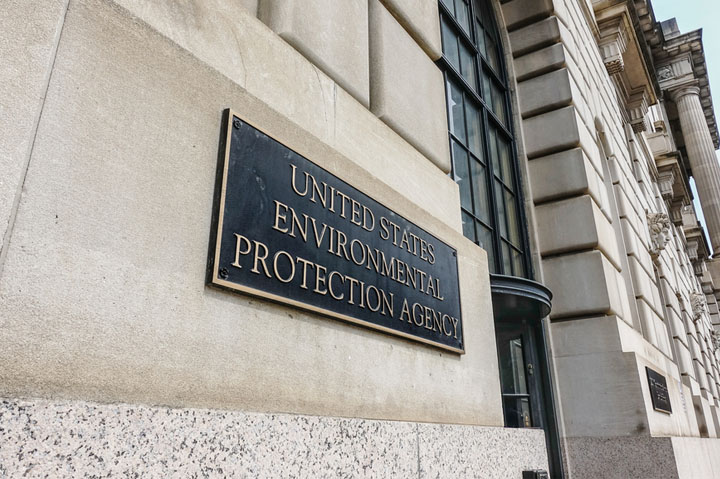March 16, 2023
EPA Proposes Regulation of ‘Forever Chemicals’ in Drinking Water
The move follows a wave of increased scrutiny against PFAS, which have been used in a range of items from waterproof fabric to personal care products.
The Environmental Protection Agency (EPA) this week is proposing the first national drinking-water standards for six poly- and perfluoroalkyl substances (PFAS), a move it says would prevent thousands of deaths and reduce tens of thousands of illnesses if enacted.

Colloquially known as “forever chemicals” because they don’t break down in the environment and can contaminate water sources, PFAS have been used in a wide range of products, from waterproofing outdoor apparel to firefighting foam, nonstick pans, carpets, shampoos, mascara and some grease-resistant paper. The chemicals are linked to infertility, thyroid problems and several types of cancer.
The proposal would require water utilities to detect and reduce PFAS contamination at 4 parts per trillion, which EPA leaders say is the lowest level they can be accurately measured and detected. The EPA says it anticipates finalizing the new regulation by the end of 2023. The EPA is currently seeking public comment on the proposed regulation, with a public hearing planned for May 4.
The EPA’s proposed rule would require public water systems to monitor for PFAS, notify the public of their levels and actively reduce the levels in drinking water if they exceed the proposed standards.
The proposed rule has drawn criticism from the National Association of Water Companies, a trade group for investor-owned utilities. Robert F. Powelson, the president of the group, asked Congress to require chemical manufacturers to pay for cleanup and water treatment. “Instead of coming from the pockets of water and wastewater customers and utilities, the polluters should be held directly responsible for the cleanup costs,” Powelson said in a statement.
A trade group for the chemical industry said it had “serious concerns” about the proposed standards, noting that though it supports nationwide standards, these limits would likely result in “billions of dollars in compliance costs.”
Environmental groups, however, praised the proposal. “For the millions of people with PFAS in their tap water, strong national drinking-water standards cannot come soon enough,” said Jonathan Kalmuss-Katz, an attorney for Earthjustice, in a statement.
Julia Cohen, co-founder and managing director of the Plastic Pollution Coalition also lauded the Biden administration for the proposal, adding: “However, much more work must be done to regulate industries making the thousands of PFAS that currently exist, to end the use and production of these dangerous forever chemicals – which are so commonly used as additives in plastics – and to remediate and restore our environment.”
Separate from the drinking water limits, the EPA is also considering a move to classify PFAS as hazardous. Momentum has been building to address the potential harms and reduce the use of PFAS in various products. In December, 3M, parent company of Top 40 promotional products supplier 3M/Promotional Markets (asi/91240), announced that it would stop manufacturing and using PFAS chemicals across its product portfolio by the end of 2025. New York and California both recently banned the chemicals in apparel. And a recent Maine law requires manufacturers to report the presence of intentionally added PFAS chemicals to products they seek to sell or distribute in the state.
The six PFAS targeted in the EPA’s proposed drinking-water limits are perfluorooctanoic acid (PFOA), perfluorooctane sulfonic acid (PFOS), perfluorononanoic acid (PFNA), hexafluoropropylene oxide dimer acid (HFPO-DA, commonly known as GenX chemicals) perfluorohexane sulfonic acid (PFHxS) and perfluorobutane sulfonic acid (PFBS). U.S. manufacturers have largely replaced two of the most common compounds (PFOA and PFOS) with other fluorinated compounds, but two of those alternatives GenX and PFBS have also been found to be dangerous to ingest.

Promo for the Planet is your destination for the latest news, biggest trends and best ideas to help build a more sustainable and socially-responsible industry.
